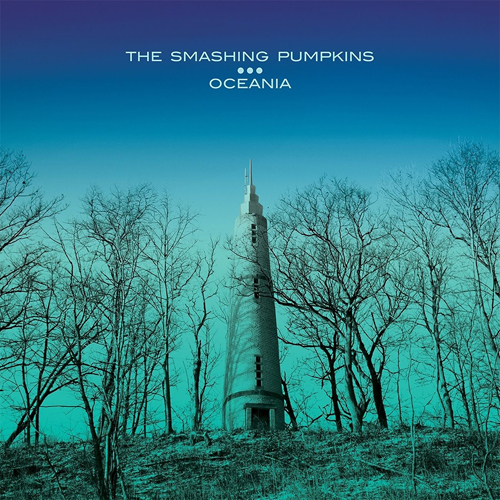Want to hear a joke? Billy Corgan. But seriously, folks…
Oceania is a decent return to form
Want to hear a joke? Billy Corgan. But seriously, folks…
Smashing Pumpkins is one of those bands that no one, barring the college freshman recently exposed to Dark Side of the Moon and Nietzsche, can embrace as a consistently unconventional and challenging artistic vision (see R.E.M., Radiohead, Beck). It’s easy enough to like a given song in the Smashing Pumpkins’ retinue, but this is a band that’s really hard to love. We owe that to principal songwriter and general laughingstock Billy Corgan.
Embarrassing conceptual missteps are as much a mainstay of the Pumpkins—i.e. Corgan—as pretentious bullshit is to Oasis. Nonetheless, it’s foolish to write the band off as a clumsy failure. When they’re bad, yes, they’re Manowar bad. But when they’re good, the Pumpkins soar.
Is Oceania a soaring effort? No. But it’s probably the best the Smashing Pumpkins have sounded since 1993’s Siamese Dream, the record Oceania channels most closely.
Oceania stands out for, if nothing else, being even marginally better than halfway decent, considering the string of successfully weaker yawns since 1995’s Mellon Collie and the Infinite Sadness. It adds some new tricks to the equation, but nothing of the magnitude necessary to return the Smashing Pumpkins to the “best new artist” status they enjoyed back in the early nineties.
When Gish came out in May 1991 (notably, before Nirvana’s Nevermind), the embryonic stirrings of the alternative/indie revolution that would overtake the last decade of the century could be heard rumbling through the opening bars of “I Am One,” achieving synthesis in “Siva” and “Rhinoceros.” Every Smashing Pumpkins album since has been a scramble at that first romping high. Siamese Dream and Mellon Collie succeeded, and opened up new avenues for musical expression. Things more or less turned to shit after that, but hey—goes up, comes down.
Oceania sounds like Smashing Pumpkins at their fruitful, pretentious best. You won’t be able to understand most of what Corgan is singing and, unless you’re committed to liking this album less, you’d do well not to try. There’s no need to reaffirm Corgan’s doleful relationship with poetic imagery. The meticulous overproduction that seems to arbitrarily hit or miss is here in spades, fortunately hitting more than missing. In terms of aesthetics, it’s classic Pumpkins. It’s spectral, sentimental, astral (the first track is titled “Quasar”—on account of quasars being science-y and all).
When Oceania fails, it’s when Corgan tries to give us too much—an overexposure of sonic texture, if you will, that loves itself for its complexity but fails to carry through any sort of dramatic impact. “Panopticon” prides itself on all the digital bells and whistles but dithers as it struggles to find a mood to stick with.
Gish rode on a certain spirit, a cry of desperation for a message that had to be said. Siamese Dream offered the same sentiment, albeit with the refinement of maturity and resource availability. Oceania sounds like it has a lot to say, but doesn’t have the restraint to form coherent sentences, like a 4-year-old trying to relate a day at Six Flags on the ride home: One fun thing stumbles into another, replete throughout with all the excited “um”s and “uh”s and “and then we”s. One wants to tell Corgan to shut up for a minute and slow the fuck down.
There is some stylistic and organizational confusion here. The album doesn’t quite find its feet until the third track, “Celestials.” That being said, from “Celestials” onward there is little to criticize. Highlights include the title track, “Violet Rays” and the epic ballad “Pinwheels,” a pleasant little dirge of sentimentality and vaguely romantic longing. The end result is something like a combination of Gish’s “Rhinoceros” and Mellon Collie’s “1979.” The title track is a lot of things, none of them bad, that defy summation. It’s long and spectral and layered and all that good Pumpkins shit.
Oceania is, apparently, but one piece of a massive 44-song epic called Teargarden by Kaleidyscope. Corgan, established already as a man given to epics and lumbering compositions, has done a nice job of recovering from the dull inanity of 2007’s Zeitgeist. Corgan is best when he concerns himself with the grandeur of intimacy—subtle beauty reenvisioned as something sweeping and majestic. And while Zeitgeist unwisely attempted a lambast of modern societal ills, Oceania concerns itself with a more personal sort of conflict. The end result? One of the tracks is titled “My Love Is Winter”—you be the judge on that one.






